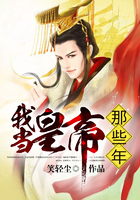The polishing of the Latin tongue, in the succession of times, made the only difference; and Horace himself in two of his satires, written purposely on this subject, thinks the Romans of his age were too partial in their commendations of Lucilius, who writ not only loosely and muddily, with little art and much less care, but also in a time when the Latin tongue was not yet sufficiently purged from the dregs of barbarism; and many significant and sounding words which the Romans wanted were not admitted even in the times of Lucretius and Cicero, of which both complain.
But to proceed: Dacier justly taxes Casaubon for saying that the satires of Lucilius were wholly different in species from those of Ennius and Pacuvius, Casaubon was led into that mistake by Diomedes the grammarian, who in effect says this:- "Satire amongst the Romans but not amongst the Greeks, was a biting invective poem, made after the model of the ancient comedy, for the reprehension of vices; such as were the poems of Lucilius, of Horace, and of Persius. But in former times the name of satire was given to poems which were composed of several sorts of verses, such as were made by Ennius and Pacuvius"--more fully expressing the etymology of the word satire from satura, which we have observed. Here it is manifest that Diomedes makes a specifical distinction betwixt the satires of Ennius and those of Lucilius. But this, as we say in English, is only a distinction without a difference; for the reason of it is ridiculous and absolutely false. This was that which cozened honest Casaubon, who, relying on Diomedes, had not sufficiently examined the origin and nature of those two satires, which were entirely the same both in the matter and the form; for all that Lucilius performed beyond his predecessors, Ennius and Pacuvius, was only the adding of more politeness and more salt, without any change in the substance of the poem. And though Lucilius put not together in the same satire several sorts of verses, as Ennius did, yet he composed several satires of several sorts of verses, and mingled them with Greek verses: one poem consisted only of hexameters, and another was entirely of iambics; a third of trochaics; as is visible by the fragments yet remaining of his works. In short, if the satires of Lucilius are therefore said to be wholly different from those of Ennius because he added much more of beauty and polishing to his own poems than are to be found in those before him, it will follow from hence that the satires of Horace are wholly different from those of Lucilius, because Horace has not less surpassed Lucilius in the elegancy of his writing than Lucilius surpassed Ennius in the turn and ornament of his. This passage of Diomedes has also drawn Dousa the son into the same error of Casaubon, which I say, not to expose the little failings of those judicious men, but only to make it appear with how much diffidence and caution we are to read their works when they treat a subject of so much obscurity and so very ancient as is this of satire.
Having thus brought down the history of satire from its original to the times of Horace, and shown the several changes of it, I should here discover some of those graces which Horace added to it, but that I think it will be more proper to defer that undertaking till I make the comparison betwixt him and Juvenal. In the meanwhile, following the order of time, it will be necessary to say somewhat of another kind of satire which also was descended from the ancient; it is that which we call the Varronian satire (but which Varro himself calls the Menippean) because Varro, the most learned of the Romans, was the first author of it, who imitated in his works the manners of Menippus the Gadarenian, who professed the philosophy of the Cynics.
This sort of satire was not only composed of several sorts of verse, like those of Ennius, but was also mixed with prose, and Greek was sprinkled amongst the Latin. Quintilian, after he had spoken of the satire of Lucilius, adds what follows:- "There is another and former kind of satire, composed by Terentius Varro, the most learned of the Romans, in which he was not satisfied alone with mingling in it several sorts of verse." The only difficulty of this passage is that Quintilian tells us that this satire of Varro was of a former kind; for how can we possibly imagine this to be, since Varro, who was contemporary to Cicero, must consequently be after Lucilius?
But Quintilian meant not that the satire of Varro was in order of time before Lucilius; he would only give us to understand that the Varronian satire, with mixture of several sorts of verses, was more after the manner of Ennius and Pacuvius than that of Lucilius, who was more severe and more correct, and gave himself less liberty in the mixture of his verses in the same poem.















